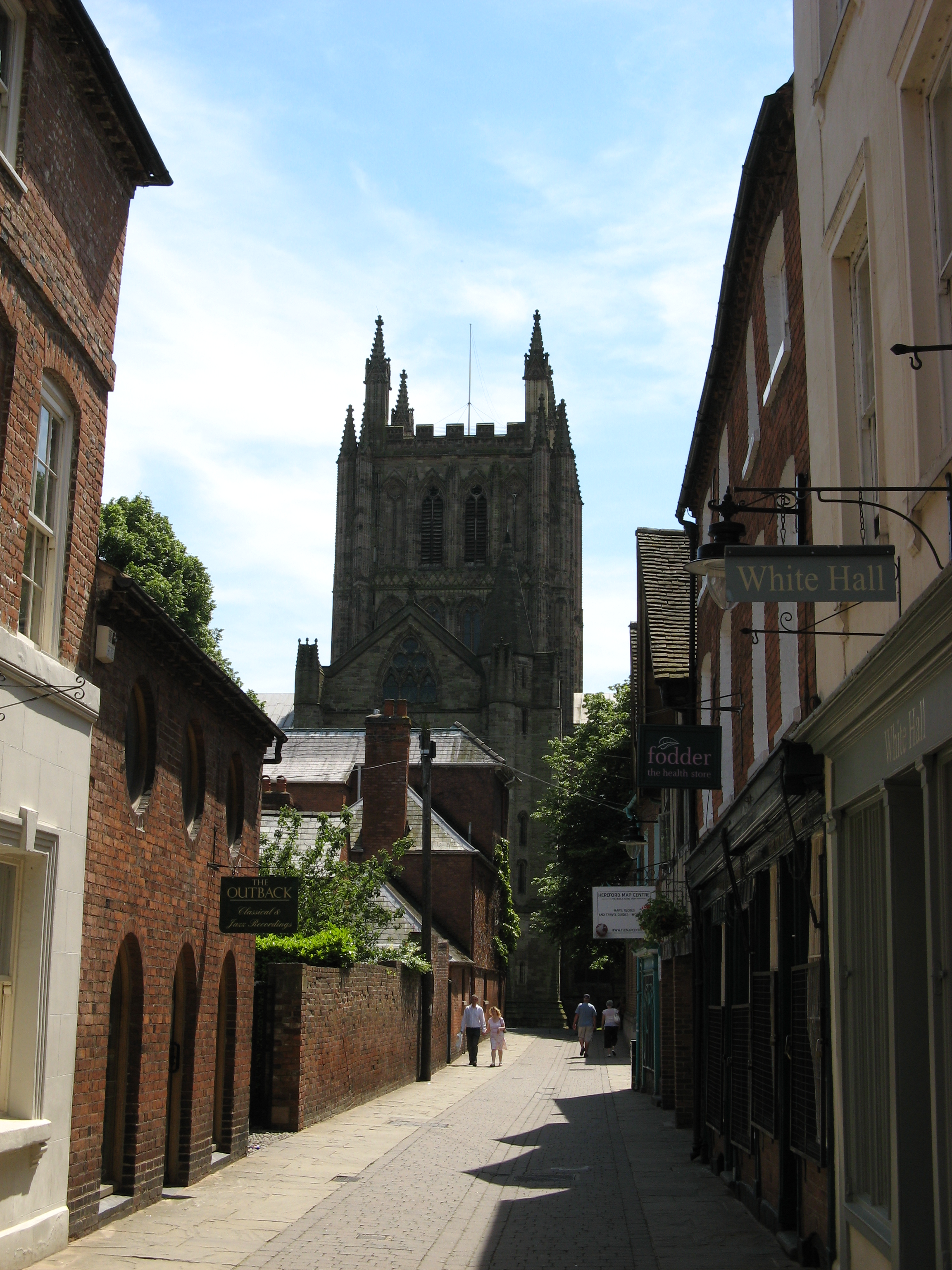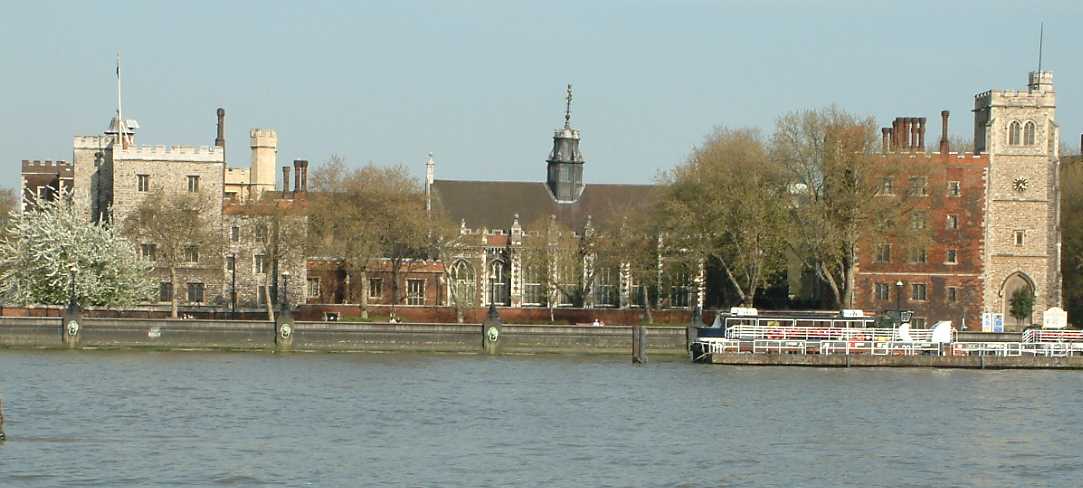|
Philip Traherne
Philip Traherne, or Traheron (; 9 August 1635 in Lugwardine – 1686 in St. Nicholas, Hereford) was an English diplomat, author of books. He was son of Thomas Traherne (1603–1644) and Mary. He was English Chaplain at Smyrna in 1669–1674. He possessed minuscule 71, a Greek manuscript of the four Gospels, and brought it to England. Traherne collated text of the manuscript, and in 1679, presented it to Lambeth Palace Lambeth Palace is the official London residence of the Archbishop of Canterbury. It is situated in north Lambeth, London, on the south bank of the River Thames, south-east of the Palace of Westminster, which houses Parliament, on the opposite ... along with its collation. Works * ''The soul's communion with her saviour. Or, The history of our Lord Jesus Christ, written by the four evangelists digested into devotional meditations'' (1685) References Further reading * J. B. Pearson, ''A biographical sketch of the chaplains to the Levant Company 1611 ... [...More Info...] [...Related Items...] OR: [Wikipedia] [Google] [Baidu] |
Lugwardine
Lugwardine is a village and civil parish in Herefordshire, England, to the east of Hereford. It lies on the north-east bank of the River Lugg, which gives the village its name. The population of the civil parish taken at the 2011 Census was 1,721. The place-name 'Lugwardine' is first attested in the Domesday Book of 1086, where it appears as ''Lucvordine''. It appears as ''Lugwurthin'' in the Pipe Rolls of 1168. The name means 'enclosure or homestead on the (river) Lugg'. The village lies on the A438 road; Lugwardine Bridge takes this road across the Lugg. There is a public house in the village called The Crown and Anchor. St Mary's Roman Catholic High School is in the village. There is also a primary school, shared with neighbouring Bartestree. Parish The parish contains the village of Lugwardine, and the hamlets of: *Hagley – on the A438 to the east of Lugwardine, now part of the village of Bartestree. *Tidnor – a very small place, to the south-east of Lugwardine; ... [...More Info...] [...Related Items...] OR: [Wikipedia] [Google] [Baidu] |
Hereford
Hereford () is a cathedral city, civil parish and the county town of Herefordshire, England. It lies on the River Wye, approximately east of the border with Wales, south-west of Worcester and north-west of Gloucester. With a population of 53,112 in 2021 it is by far the largest settlement in Herefordshire. An early town charter from 1189, granted by Richard I of England, describes it as "Hereford in Wales". Hereford has been recognised as a city since time immemorial, with the status being reconfirmed as recently as October 2000. It is now known chiefly as a trading centre for a wider agricultural and rural area. Products from Hereford include cider, beer, leather goods, nickel alloys, poultry, chemicals and sausage rolls, as well as the famous Hereford breed of cattle. Toponymy The Herefordshire edition of Cambridge County Geographies states "a Welsh derivation of Hereford is more probable than a Saxon one" but the name "Hereford" is also said to come from the Angl ... [...More Info...] [...Related Items...] OR: [Wikipedia] [Google] [Baidu] |
Smyrna
Smyrna ( ; grc, Σμύρνη, Smýrnē, or , ) was a Greek city located at a strategic point on the Aegean coast of Anatolia. Due to its advantageous port conditions, its ease of defence, and its good inland connections, Smyrna rose to prominence. The name of the city since about 1930 is İzmir. Two sites of the ancient city are today within Izmir's boundaries. The first site, probably founded by indigenous peoples, rose to prominence during the Archaic Period as one of the principal ancient Greek settlements in western Anatolia. The second, whose foundation is associated with Alexander the Great, reached metropolitan proportions during the period of the Roman Empire. Most of the present-day remains of the ancient city date from the Roman era, the majority from after a second-century AD earthquake. In practical terms, a distinction is often made between these. ''Old Smyrna'' was the initial settlement founded around the 11th century BC, first as an Aeolian settlement, and l ... [...More Info...] [...Related Items...] OR: [Wikipedia] [Google] [Baidu] |
Minuscule 71
Codex Ephesinus, minuscule 71 (in the Gregory-Aland numbering), ε 253 ( von Soden), is a Greek minuscule manuscript of the New Testament, on parchment, illuminated, and elegantly written. It is dated by the colophon to 1160. In the 15th century the manuscript was prepared for liturgical use. The scribal errors are not numerous, but it has many textual divergences from the common text. The Greek text of the codex is a representative of the Byzantine text-type, but the textual character of the codex is disputed by scholars since the 19th century. It has full marginalia with marks of the text's division, with liturgical notes and scholia. Only one leaf of the codex had lost. The manuscript was brought to England in 1675 by Philip Traherne, English Chaplain at Smyrna, who made first collation of its text. The collation was corrected by Scrivener in 1845. It was called ''Codex Ephesinus'', because of place of its origin. It is currently housed in the library of the Lambeth Palace ( ... [...More Info...] [...Related Items...] OR: [Wikipedia] [Google] [Baidu] |
Gospel
Gospel originally meant the Christian message ("the gospel"), but in the 2nd century it came to be used also for the books in which the message was set out. In this sense a gospel can be defined as a loose-knit, episodic narrative of the words and deeds of Jesus, culminating in his trial and death and concluding with various reports of his post-resurrection appearances. Modern scholars are cautious of relying on the gospels uncritically, but nevertheless, they provide a good idea of the public career of Jesus, and critical study can attempt to distinguish the original ideas of Jesus from those of the later authors. The four canonical gospels were probably written between AD 66 and 110. All four were anonymous (with the modern names added in the 2nd century), almost certainly none were by eyewitnesses, and all are the end-products of long oral and written transmission. Mark was the first to be written, using a variety of sources. The authors of Matthew and Luke both independently ... [...More Info...] [...Related Items...] OR: [Wikipedia] [Google] [Baidu] |
Lambeth Palace
Lambeth Palace is the official London residence of the Archbishop of Canterbury. It is situated in north Lambeth, London, on the south bank of the River Thames, south-east of the Palace of Westminster, which houses Parliament, on the opposite bank. History While the original residence of the Archbishop of Canterbury was in his episcopal see, Canterbury, Kent, a site originally called the Manor of Lambeth or Lambeth House was acquired by the diocese around AD 1200 and has since served as the archbishop's London residence. The site is bounded by Lambeth Palace Road to the west and Lambeth Road to the south, but unlike all surrounding land is excluded from the parish of North Lambeth. The garden park is listed and resembles Archbishop's Park, a neighbouring public park; however, it was a larger area with a notable orchard until the early 19th century. The former church in front of its entrance has been converted to the Garden Museum. The south bank of the Thames along this re ... [...More Info...] [...Related Items...] OR: [Wikipedia] [Google] [Baidu] |
1635 Births
Events January–March * January 23 – 1635 Capture of Tortuga: The Spanish Navy captures the Caribbean island of Tortuga off of the coast of Haiti after a three-day battle against the English and French Navy. * January 25 – King Thalun moves the capital of Burma from Pegu to Ava. * February 22 – The ''Académie française'' in Paris is formally constituted, as the national academy for the preservation of the French language. * March 22 – The Peacock Throne of India's Mughal Empire is inaugurated in a ceremony in Delhi to support the seventh anniversary of Shah Jahan's accession to the throne as Emperor. * March 26 – Philipp Christoph von Sötern, the Archbishop-Elector of Trier, is taken prisoner in a surprise attack by Spanish Habsburg troops, leading to a declaration of war against Spain by France and the beginning of the Franco-Spanish War. April–June * April 13 – Druze warlord Fakhr-al-Din II is executed in Cons ... [...More Info...] [...Related Items...] OR: [Wikipedia] [Google] [Baidu] |
1686 Deaths
Events January–March * January 3 – In Madras (now Chennai) in India, local residents employed by the East India Company threaten to boycott their jobs after corporate administrator William Gyfford imposes a house tax on residences within the city walls. Gyfford places security forces at all entrances to the city and threatens to banish anyone who fails to pay their taxes, as well as to confiscate the goods of merchants who refuse to make sales. A compromise is reached the next day on the amount of the taxes. * January 17 – King Louis XIV of France reports the success of the Edict of Fontainebleau, issued on October 22 against the Protestant Huguenots, and reports that after less than three months, the vast majority of the Huguenot population had left the country. * January 29 – In Guatemala, Spanish Army Captain Melchor Rodríguez Mazariegos leads a campaign to conquer the indigenous Maya people in the rain forests of Lacandona, departing f ... [...More Info...] [...Related Items...] OR: [Wikipedia] [Google] [Baidu] |
British Chaplains
British may refer to: Peoples, culture, and language * British people, nationals or natives of the United Kingdom, British Overseas Territories, and Crown Dependencies. ** Britishness, the British identity and common culture * British English, the English language as spoken and written in the United Kingdom or, more broadly, throughout the British Isles * Celtic Britons, an ancient ethno-linguistic group * Brittonic languages, a branch of the Insular Celtic language family (formerly called British) ** Common Brittonic, an ancient language Other uses *''Brit(ish)'', a 2018 memoir by Afua Hirsch *People or things associated with: ** Great Britain, an island ** United Kingdom, a sovereign state ** Kingdom of Great Britain (1707–1800) ** United Kingdom of Great Britain and Ireland (1801–1922) See also * Terminology of the British Isles * Alternative names for the British * English (other) * Britannic (other) * British Isles * Brit (other) * Briton (d ... [...More Info...] [...Related Items...] OR: [Wikipedia] [Google] [Baidu] |






